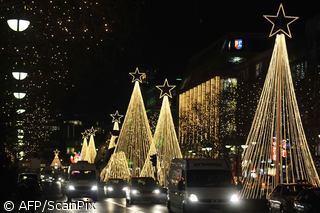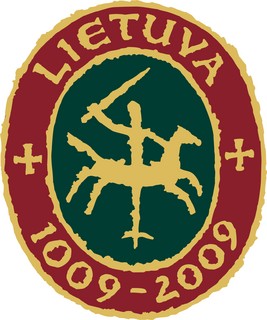Despite a White House prohibition, 13 government agencies are secretly using technology that tracks the Internet habits of people visiting their Web sites.
Published:
31 October 2000 y., Tuesday
Despite a White House prohibition, 13 government agencies are secretly using technology that tracks the Internet habits of people visiting their Web sites and in at least one case provide the information to a private company, a congressional review has found.
The agencies range from the Federal Aviation Administration to the federal offices that provide disaster relief and administer Medicare, the General Accounting Office (GAO) found in a study obtained by the Associated Press.
"How can this administration talk about protecting privacy when its own agencies jeopardize some of the public's most private information?" asked Sen. Fred Thompson, R-Tenn., chairman of the Senate Governmental Affairs Committee. Thompson's committee has jurisdiction over the 1974 Privacy Act and other laws that dictate the government's privacy practices. At issue is the use by the 13 government Web sites of small text files, or cookies, that record information about a person's browsing habits when visiting sites on the Internet.
In June, the White House Office of Management and Budget advised all federal agencies that they are not allowed to use such text files without approval from the agency head. If they are used, the OMB directive said, Web site visitors must be given "clear and conspicuous notice" of such use. But the GAO, the investigatory arm of Congress, found that 13 agencies were using the technology to track visitors, although their formal Internet policy said they weren't doing so, and none of the Web site visitors were advised the technology was being used. The study found all 13 tracked consumers' path during their visit to the site, and some were employing "persistent" text files that could be read for years after the initial visit.
Šaltinis:
two.digital.cnet.com
Copying, publishing, announcing any information from the News.lt portal without written permission of News.lt editorial office is prohibited.
The most popular articles
 EU testing shows serious risk of shocks and fire in many lights. Stay safe – turn them off when you go to bed or leave the house.
more »
EU testing shows serious risk of shocks and fire in many lights. Stay safe – turn them off when you go to bed or leave the house.
more »
 The European Parliament has a close relationship with African, Caribbean and Pacific (ACP) states and during the 18th ACP/EU Joint Parliamentary Assembly in Angola, MEPs took time to visit the new city of Kilamba Kiaxi, south of Luanda, where 20,000 apartments are being built.
more »
The European Parliament has a close relationship with African, Caribbean and Pacific (ACP) states and during the 18th ACP/EU Joint Parliamentary Assembly in Angola, MEPs took time to visit the new city of Kilamba Kiaxi, south of Luanda, where 20,000 apartments are being built.
more »
 Everyone can fight climate change by not eating meat one day a week, urged Sir Paul McCartney at a European Parliament public hearing on "Global Warming and Food Policy: Less Meat = Less Heat" on Thursday.
more »
Everyone can fight climate change by not eating meat one day a week, urged Sir Paul McCartney at a European Parliament public hearing on "Global Warming and Food Policy: Less Meat = Less Heat" on Thursday.
more »
 Movies of Lithuanian cinema were demonstrated in the Supreme Headquarters Allied Powers Europe (SHAPE) near Mons (Belgium) from November 9 to 11.
more »
Movies of Lithuanian cinema were demonstrated in the Supreme Headquarters Allied Powers Europe (SHAPE) near Mons (Belgium) from November 9 to 11.
more »
 30% of Christmas lights present an obvious and direct risk of fire and electric shocks according to a new report published today by the European Commission.
more »
30% of Christmas lights present an obvious and direct risk of fire and electric shocks according to a new report published today by the European Commission.
more »
 Irish national TV Europe correspondent, Tony Connelly launched his new book “Don't mention the Wars: A Journey Through European Stereotypes” at European Union House, Dublin, on 25 November 2009.
more »
Irish national TV Europe correspondent, Tony Connelly launched his new book “Don't mention the Wars: A Journey Through European Stereotypes” at European Union House, Dublin, on 25 November 2009.
more »
 A wedding for a man and woman in Southern Peru clearly didn't count on the attendance of at least two guests-- family members of the groom's current wife.
more »
A wedding for a man and woman in Southern Peru clearly didn't count on the attendance of at least two guests-- family members of the groom's current wife.
more »
 Day two of the Employment, Social Policy, Health and Consumer Affairs Council was primarily dedicated to health and public health issues.
more »
Day two of the Employment, Social Policy, Health and Consumer Affairs Council was primarily dedicated to health and public health issues.
more »
 A cold and rainy day in Madrid, Spain - at just degrees celsius not the best conditions for a naked demonstration.
more »
A cold and rainy day in Madrid, Spain - at just degrees celsius not the best conditions for a naked demonstration.
more »
 Today, the European Commission adopted a financial package of €275 million to support programmes to eradicate, control and monitor animal diseases in 2010.
more »
Today, the European Commission adopted a financial package of €275 million to support programmes to eradicate, control and monitor animal diseases in 2010.
more »